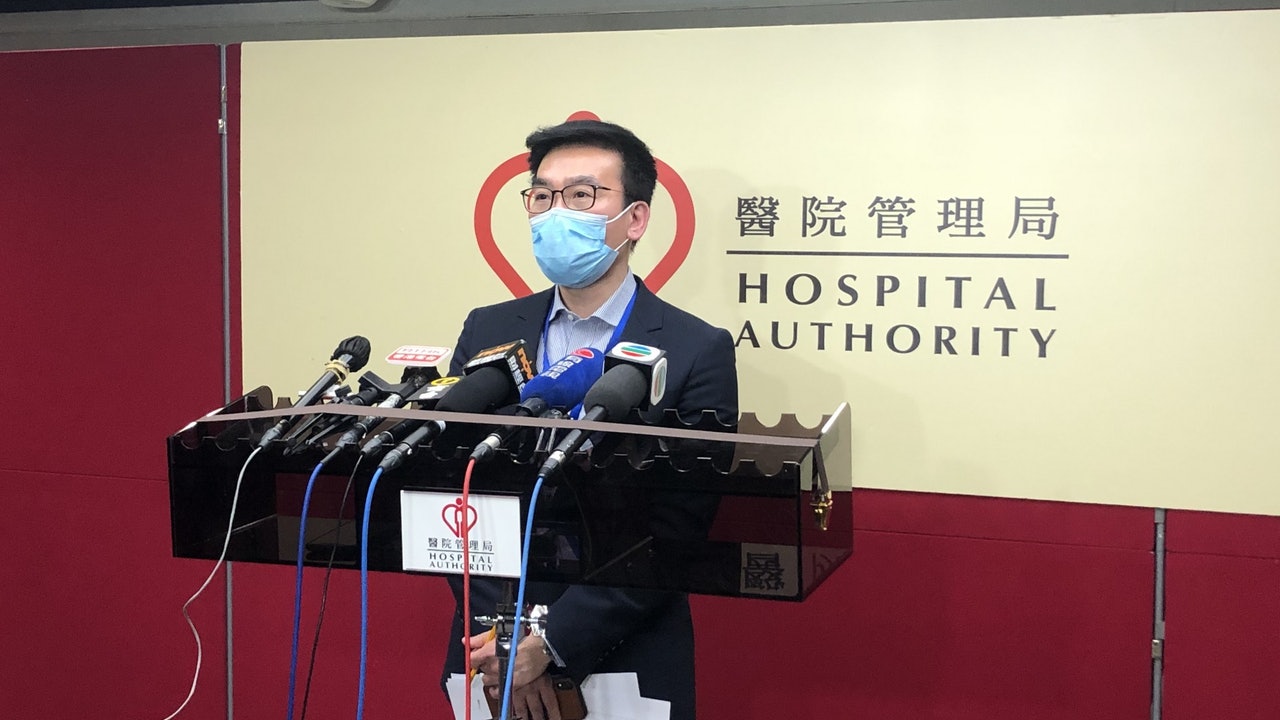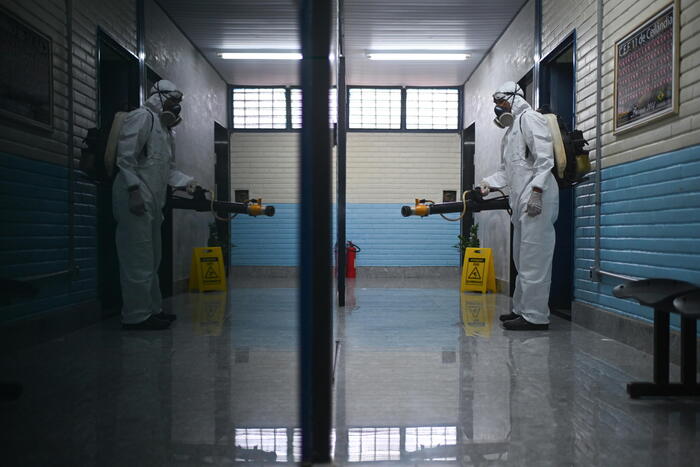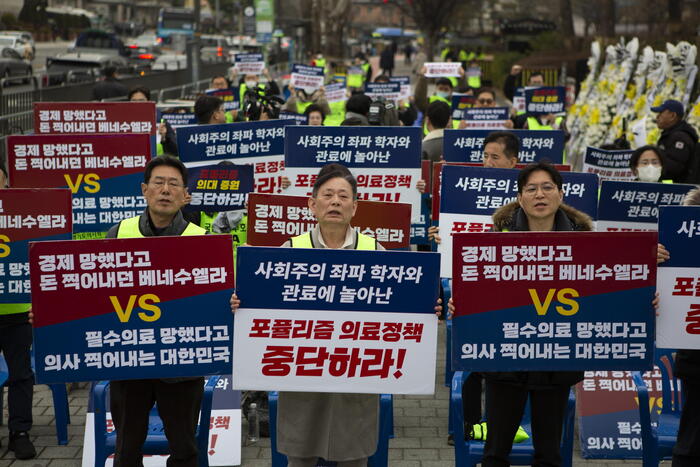Social News
Author: Chen Qianting
2020-10-23 15:02
Last update date: 2020-10-23 15:02
The first case of Candida auris imported from overseas was recorded in Hong Kong since June last year, and the Kowloon West Cluster of public hospitals continued to record outbreaks. Although the authorities once said that the outbreak was over, the outbreak began in July this year and has been recorded until the latest There were 140 cases, a 6-fold increase from 20 cases last year.
Lai Wai-man, Chief Infection Control Director of the Hospital Authority, pointed out that only two of the carriers in Hong Kong were infected. However, since patients can carry the bacteria for up to 10 months and Candida auris can survive for a long time in the environment, the HA will expand the screening To check the patients, the target is 2,000 patients who are hospitalized and infected with multi-drug resistant bacteria. Testing will also be strengthened, and special equipment will be provided to all inpatients in each network within this year to reduce the risk of cross-infection of shared equipment. Although it may not be eliminated, it is hoped that outbreaks can be reduced.
Lai Weiwen said that of the 160 Candida auris cases recorded in Hong Kong, two were infected.
(Photo by Chen Qianting)
Since the discovery of the first case of Candida auris in Hong Kong, a total of about 160 cases have been recorded, all of which occurred in Princess Margaret Hospital, North Lantau Hospital and Yan Chai Hospital of the Kowloon West Cluster. The patients ranged from 21 to 101 years old. 79% of patients are in the group over 60 years old, with more males, accounting for 77% of the total cases.
Patients are mainly admitted to medical wards, and some are also admitted to convalescent wards and brain surgery wards.
If the elderly are infected with bacteria, the mortality rate can be as high as 60%
Lai Wai-man, Chief Infection Control Director of the Hospital Authority, said that two of the 156 cases were infected. They all developed symptoms after carrying the bacteria for a period of time. One of them was infected through a urinary catheter, and the other was infected by fungus into the blood. The fungal drug Echinocandins has recovered.
Lai Weiwen pointed out that the elderly and patients with long-term illnesses are more likely to carry bacteria, have lower immunity, and may need to be intubated, also need to take antibiotics, and long-term bed rest will increase the risk of infection.
He quoted overseas data as saying that the death rate can be as high as 30 to 60% if bacteria invade the elderly after infection, so special attention should be paid to the situation of the elderly.
Lai Weiwen said that of the 160 Candida auris cases recorded in Hong Kong, two were infected.
(Photo by Chen Qianting)
Last year's outbreak of unbroken new pneumonia caused ward reduction and increased risk
This year’s case was an outbreak since July. Lai Weiwen said that in the ward, more than one case of Candida auris was considered an outbreak. He believed that this year’s outbreak was related to last year’s case. Although there is no empirical proof, the ear Candida can survive in the environment for a long time, and patients can carry the bacteria for up to 8 to 10 months.
He also mentioned that a total of more than 2,000 environmental samples were collected at Princess Margaret and Yan Chai Hospital, of which more than 1% of the samples were positive, mainly from chairs, bed rails, and shared blankets around the patients.
He continued that July happened to be the third wave of the outbreak of the new coronavirus pneumonia. The isolation ward of the public hospital was mainly used to care for patients with new pneumonia, and some internal medicine wards were converted to monitoring wards, which reduced the number of internal medicine wards. The patient is placed in the corner of the ward, increasing the risk of outbreak and cross-infection. He admitted that the practice is not ideal and needs improvement.
Patients with bacteria can still be discharged without waiting for "cleansing bacteria"
Patients with Candida auris can last up to 100 days. Lai Weiwen pointed out that if the clinical situation improves, it is not necessary to wait for all the bacteria to be removed before being discharged. In the past, if the patients did not need to insert the catheter after being discharged from the hospital and did not take long-term antibiotics, " Will slowly throw away", may not coexist for a lifetime, the Hospital Authority also has guidelines to remind patients not to share things with others.
As of October 10, among the 156 cases, 59 cases were residents in residential homes for the elderly or disabled people. Lai Weiwen said that there have been no cases of residents infecting other people after returning to the homes. The authorities will closely monitor the situation.
▼Reopening of premises and relaxation measures starting on October 23▼
+16
+16
+16
Patients with multi-drug resistant bacteria will be screened
In order to reduce the risk of outbreaks in public hospitals, the Hospital Authority will introduce a series of measures to control Candida auris. Lai Weiwen revealed that a one-time screening of Candida auris will be carried out in 17 acute hospitals, targeting 2,000 carriers and multi-drug resistant infections. Patients with sexual bacteria are planned to be launched next Tuesday (17th). Lai Weiwen explained that these patients are at a similar risk to Candida auris carriers. They also require long-term care and need catheterization. Therefore, we focus on screening these patients and obtain Follow up after the data.
The HA has also expanded the screening of admitted patients since June this year, including those who have been hospitalized overseas in the past year, those who have been admitted to Princess Margaret Hospital or Yan Chai Hospital, or those who need to be admitted to both hospitals. Patients in the treatment department and inmates who have been admitted to Candida auris patients in the in-patient facility must be screened before admission.
The authorities will also strengthen laboratory testing. In the past, the HA used "inoculation" for testing. The results were obtained in 3 or 4 days on average, but it took up to 9 days to know whether the patient was carrying the bacteria. The HA will gradually introduce PCR Nucleic acid test, the patient's sample can be found on the same day as positive or negative, helping to speed up the identification and isolation of patients.
The Hospital Authority will purchase special equipment for inpatient use, hoping to reduce the risk of cross-infection from shared equipment.
(Photo by Chen Qianting)
Set up special equipment for each inpatient
There was an outbreak of new pneumonia in the Princess Margaret Hospital in the middle of this year. The government anti-epidemic expert Yuan Guoyong once suggested that public hospitals should reduce the sharing of medical equipment.
Lai Weiwen mentioned that if the hospital environment is contaminated, it may increase the risk of transmission. Therefore, special equipment will be purchased for each inpatient, including stethoscopes, sphygmomanometer cuffs, blood test bands, ear thermometers and other items. It is the first to be used in the four seasons, and other networks will be implemented in the first and second quarters of next year.
The hospital will also rinse the mouth and disinfect the skin with chlorhexidine for the confirmed case.
The Hospital Authority will also, where feasible, set up dedicated medical staff to take care of Candida auris patients, but Lai Weiwen admitted that the fourth wave of new coronavirus pneumonia is approaching, and the Hospital Authority can only "do as much as possible" and will also hire part-time medical care To take care of patients with pneumonia, there will be beds in temporary hospitals and community treatment facilities for patients with new pneumonia. Hopefully, the beds can be vacated for other patients.
Subsidy for flu shots will be launched and the HA's guidance will be similar to last year. It can reduce the pressure on Western medicine
The staff front of the Hospital Authority sent a response template stating that a legal strike does not constitute "absence without reasonable cause"
Winter Influenza | Vaccination program to start on Thursday, HA eligible patients can receive injections for follow-up consultation
01News
Hospital Authority









